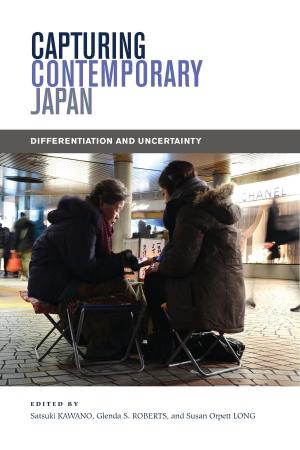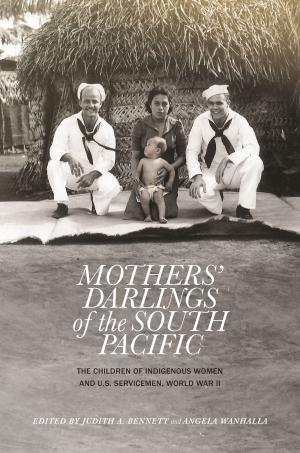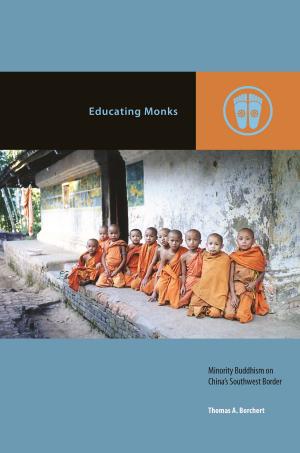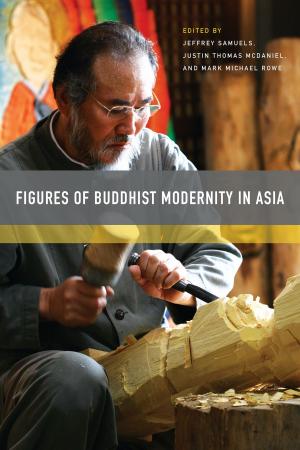Elusive Belonging
Marriage Immigrants and “Multiculturalism” in Rural South Korea
Nonfiction, History, Asian, Korea, Social & Cultural Studies, Social Science, Discrimination & Race Relations, Sociology| Author: | Minjeong Kim | ISBN: | 9780824873547 |
| Publisher: | University of Hawaii Press | Publication: | April 30, 2018 |
| Imprint: | University of Hawaii Press | Language: | English |
| Author: | Minjeong Kim |
| ISBN: | 9780824873547 |
| Publisher: | University of Hawaii Press |
| Publication: | April 30, 2018 |
| Imprint: | University of Hawaii Press |
| Language: | English |
Elusive Belonging examines the post-migration experiences of Filipina marriage immigrants in rural South Korea. Marriage migration—crossing national borders for marriage—has attracted significant public and scholarly attention, especially in new destination countries, which grapple with how to integrate marriage migrants and their children and what that integration means for citizenship boundaries and a once-homogenous national identity. In the early twenty-first century many Filipina marriage immigrants arrived in South Korea under the auspices of the Unification Church, which has long served as an institutional matchmaker.
Based on ethnographic fieldwork, Elusive Belonging examines Filipinas who married rural South Korean bachelors in the first decade of the twenty-first century. Turning away from the common stereotype of Filipinas as victims of domestic violence at the mercy of husbands and in-laws, Minjeong Kim provides a nuanced understanding of both the conflicts and emotional attachments of their relationships with marital families and communities. Her close-up accounts of the day-to-day operations of the state’s multicultural policies and public programs show intimate relationships between Filipinas, South Korean husbands, in-laws, and multicultural agents, and how various emotions of love, care, anxiety, and gratitude affect immigrant women’s fragmented citizenship and elusive sense of belonging to their new country. By offering the perspectives of varied actors, the book reveals how women’s experiences of tension and marginalization are not generated within the family alone; they also reflect the socioeconomic conditions of rural Korea and the state’s unbalanced approach to “multiculturalism.”
Against a backdrop of the South Korean government’s multicultural policies and projects aimed at integrating marriage immigrants, Elusive Belonging attends to the emotional aspects of citizenship rooted in a sense of belonging. It mediates between a critique of the assimilation inherent in Korea’s “multiculturalism” and the contention that the country’s core identity is shifting from ethnic homogeneity to multiethnic diversity. In the process it shows how marriage immigrants are incorporated into the fabric of Korean society even as they construct new identities as Filipinas in South Korea.
Elusive Belonging examines the post-migration experiences of Filipina marriage immigrants in rural South Korea. Marriage migration—crossing national borders for marriage—has attracted significant public and scholarly attention, especially in new destination countries, which grapple with how to integrate marriage migrants and their children and what that integration means for citizenship boundaries and a once-homogenous national identity. In the early twenty-first century many Filipina marriage immigrants arrived in South Korea under the auspices of the Unification Church, which has long served as an institutional matchmaker.
Based on ethnographic fieldwork, Elusive Belonging examines Filipinas who married rural South Korean bachelors in the first decade of the twenty-first century. Turning away from the common stereotype of Filipinas as victims of domestic violence at the mercy of husbands and in-laws, Minjeong Kim provides a nuanced understanding of both the conflicts and emotional attachments of their relationships with marital families and communities. Her close-up accounts of the day-to-day operations of the state’s multicultural policies and public programs show intimate relationships between Filipinas, South Korean husbands, in-laws, and multicultural agents, and how various emotions of love, care, anxiety, and gratitude affect immigrant women’s fragmented citizenship and elusive sense of belonging to their new country. By offering the perspectives of varied actors, the book reveals how women’s experiences of tension and marginalization are not generated within the family alone; they also reflect the socioeconomic conditions of rural Korea and the state’s unbalanced approach to “multiculturalism.”
Against a backdrop of the South Korean government’s multicultural policies and projects aimed at integrating marriage immigrants, Elusive Belonging attends to the emotional aspects of citizenship rooted in a sense of belonging. It mediates between a critique of the assimilation inherent in Korea’s “multiculturalism” and the contention that the country’s core identity is shifting from ethnic homogeneity to multiethnic diversity. In the process it shows how marriage immigrants are incorporated into the fabric of Korean society even as they construct new identities as Filipinas in South Korea.















